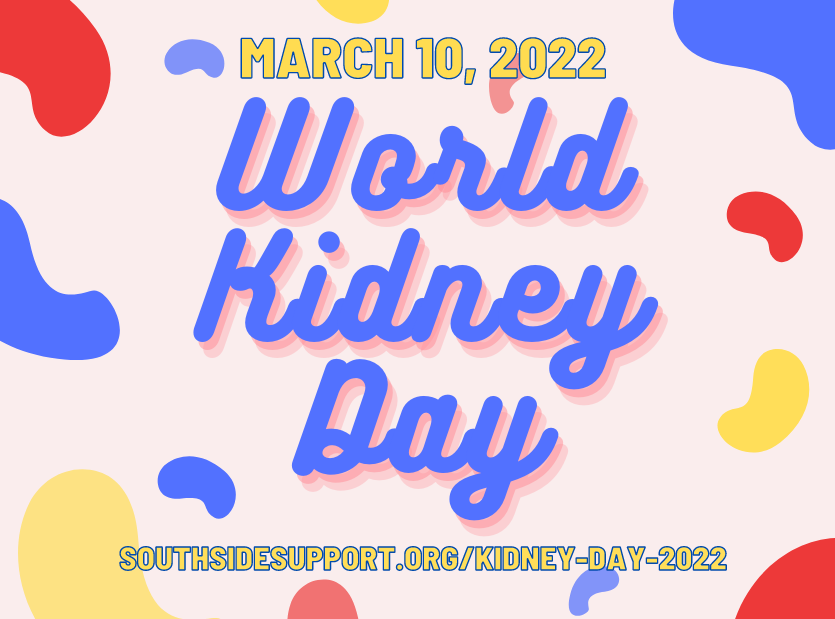Thursday, March 10, 2022 is World Kidney Day! World Kidney Day raises awareness for kidney health and aims to reduce kidney disease and other kidney-related health complications. World Kidney Day was established in 2006 and highlights a different theme each year. This year, the World Kidney Day campaign theme is Kidney Health for All and hopes to bridge the gap to better kidney care.
Why are Our Kidneys Important?
Our kidneys are essential to our health. The kidneys perform many essential functions, including removing excess toxins and water from your blood, controlling blood pressure, and producing red blood cells to support bone health.
Chronic Kidney Disease (CKD) is a disease characterized by the progressive loss of kidney function over months or years. 1 in 10 people suffer from CKD worldwide, and when left untreated the disease can be life threatening. Despite improvements in research and knowledge, CKD related mortality continues to increase and is projected to be the 5th leading cause of death worldwide by the year 2040.
Because of the severe consequences CKD can cause, early detection and management is critical. It is important to participate in frequent screening and understand the risk factors involved in kidney disease.
Risk Factors & Prevention
Risk Factors
There are a variety of risk factors involved in CKD. Two of the most prevalent risk factors are diabetes and high blood pressure. Some other risk factors include, but are not limited to, cardiovascular disease, obesity, smoking, abnormal kidney structure, and family history of kidney disease. While everyone should participate in regular kidney screening, it is especially important for high risk populations to prioritize regular screening to monitor kidney health. For more information on risk factors associated with kidney disease, visit www.mayoclinic.org.
Prevention
The World Kidney Day Campaign identifies 8 steps you can take to prevent kidney disease:
- Be Active. Staying active can reduce blood pressure and improve overall kidney health.
- Eat a Healthy Diet. A healthy diet can reduce blood pressure and prevent diabetes, heart disease, and other conditions that are associated with CKD. Additionally, reducing sodium intake and processed foods helps alleviate risk factors that contribute to CKD.
- Monitoring and Controlling Blood Sugar. Regularly monitoring blood pressure is a critical component in overall health, but is crucial in identifying diabetes, a major risk factor for kidney disease. About half of the population with diabetes do not know they have it. Early detection is important to preventing kidney disease as diabetes can be managed when detected early.
- Monitoring and Controlling Blood Pressure. Similarly to diabetes, about half of the population who have high blood pressure are not aware of it. Monitoring blood pressure should be a routine part of your health checkups. If unmanaged, high blood pressure can damage the kidneys and contribute to CKD, but the risk can be reduced if detected early.
- Appropriate Fluid Intake. Drinking the appropriate amount of fluids promotes kidney health by assisting in flushing toxins out of the system. On average, 8 cups a day is a sufficient amount of fluid, but this can vary based on independent characteristics.
- Refrain from Smoking. Smoking is detrimental to kidney function as it slows blood flow to the kidneys, reducing their ability to function normally.
- Reducing Use of Anti-inflammatory/Pain-killer Pills. Common over the counter anti-inflammatory and pain-killer drugs can harm the kidneys if taken regularly. This risk is increased for those already suffering from CKD. To avoid kidney harm from over the counter drugs, follow directions on the bottle or consult with your doctor.
- Regular Screening for High Risk Individuals. Regular screening is crucial for CKD management. If you or a loved one are in the high-risk category, make kidney screening a regular part of your health check-ups.

